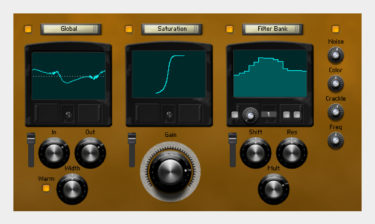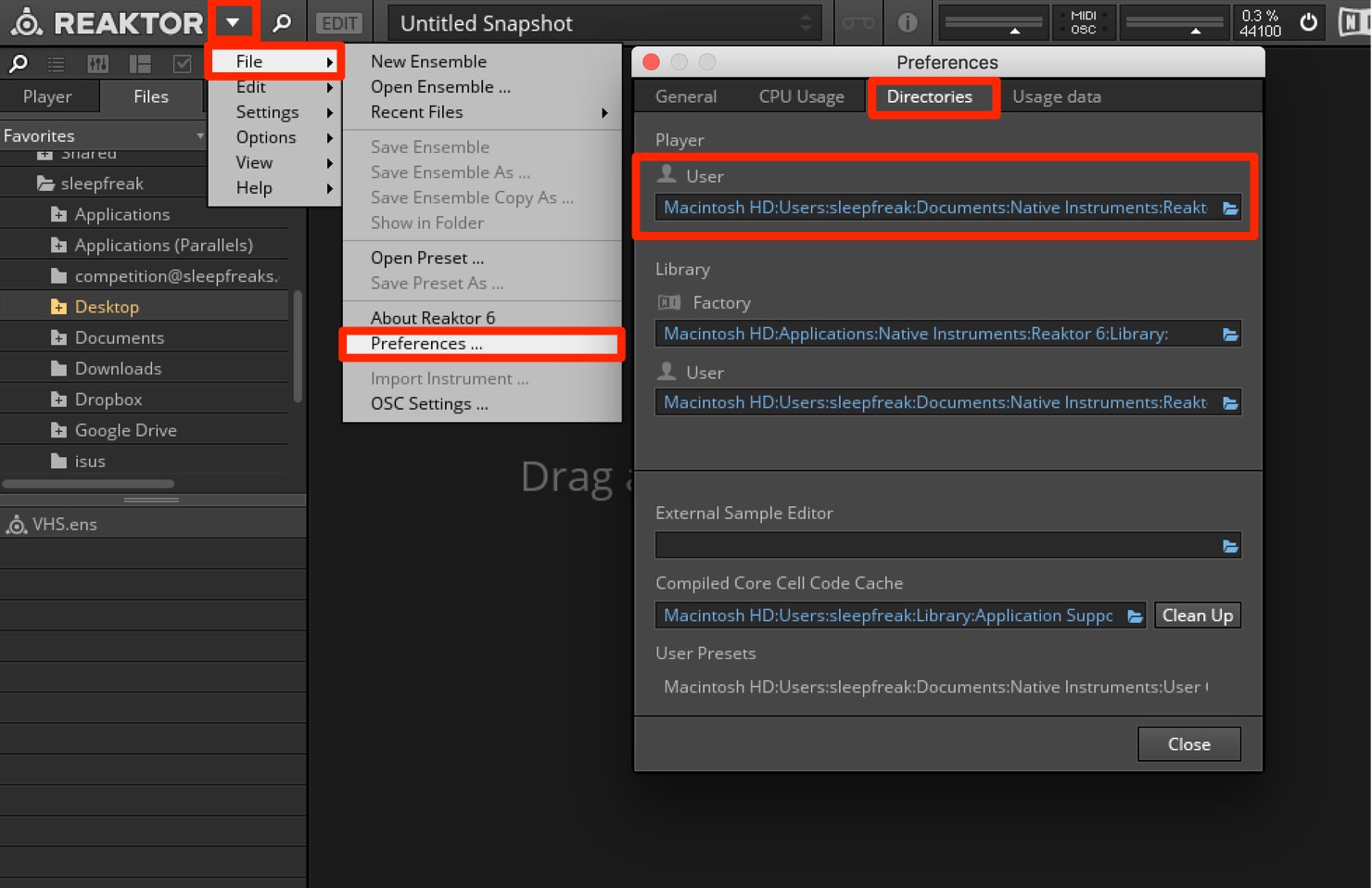

The TCS-68 was made to pay homage to one of the most iconic cassette tape based 8-track recorders introduced in 1990, a little while before digital multitrack recording solutions forced their way through into the consumer market.

#Reaktor vhs plus#
(edit) lol memories of "sync stripe" to my drum machine! :) Aka "waste of one of your 4 audio tracks" plus "adding screeching sounds that faintly bleed to your other 3 tracks sometimes".
#Reaktor vhs android#
And then I'm going to keep slapping them with it until they get their drum machine to sync to the timecode track.Ī copy of reaper, and on board sound, is a million times more capable than what I was working with when I started out.Ī decent Android phone with some small adapter and cheap app is probably better than any cassette-based system ever was, and most onboard sound on PC mainboards that cost ~$100 is easily worth using. Next time I hear someone bitch about the quality of modern converters or 44.1K 16 bit wave format audio, I'm going to slap them up-side the head with a 4 track Tascam portastudio. The first mix I did was "super clean" but it sounded refreshing. I had to get a good audio card, which was a bit difficult to find at the time, but it was worth it. I decided to hold out for PC recording software, and went in that direction a few years later. I mean, it was a lot better than the old cassette tape analog multitrack home studio stuff, but after hearing all the hype about how digital was the way of the future, and then using some of that gear, it was very, well, meh. Kinda like all the weaknesses of old cheap analog systems combined with all the weaknesses of early digital systems at the same time. I'm still waiting for someone to reproduce that sound from back in the 90's of 8 track minidisc systems.
#Reaktor vhs simulator#
Know what else we need? A simulator for improperly setup sound systems! Simulate a stereo speaker array with the speakers too close together and aimed at your shins! :D set the headphones next to the tape dropouts? What about the different "clunk" sounds hitting stop/start made on the really shitty decks for home recorded tapes? You folks doing that too? For the nostalgia of your favorite song getting chopped in two? Does it have a dropout simulator? Are there settings for tape chewed up dropouts vs. There were officially released pre-recorded cassettes like this, not bootlegs. It wasn't respooled and restarted for the fade back in. proper too? What about the thing with a pre-recorded tape where the release was so cheap that they would fade out a song at the end of one side and fade it back in in progress on the other side? This was done to conserve tape (not leave a blank section at the end of one of the sides) and it faded back 'in progress' meaning you miss the bit during the fade out/in. I find that the question: "Yeah but how does the 24 bit HD copy sound to you compared to that vinyl?" is usually met with "What's that?"Īre there settings to mimic the different mutilations from high speed dubbing vs.

Someone compares a CD that was mastered for 'portable devices' with the brick wall slamming and high end eq blast and finds some vinyl copy that is significantly better (and actually truer to the sound of the master).

I suppose to be fair, there's an element of confusion in this one. So just like the faux "vinyl resurgence" which is also all about reproducing the sound of malfunctioning equipment.
#Reaktor vhs free#
Pretty darn close to 1:1 with proper calibration and free of most of the common artifacts form malfunctioning or cheap equipment or tape stock. I remember being able to get a pretty decent recording with my Nak MR-1 with Maxell MX-S tapes. We're doing nostalgia for damaged cassettes or malfunctioning or uncalibrated cassette decks now?


 0 kommentar(er)
0 kommentar(er)
